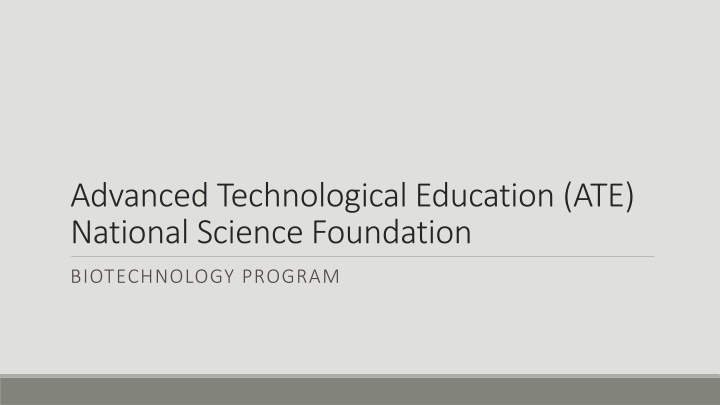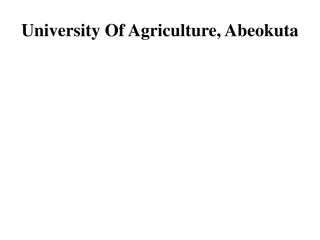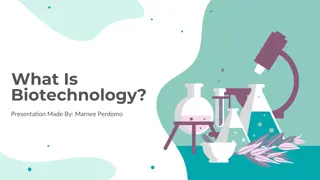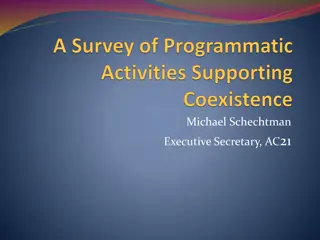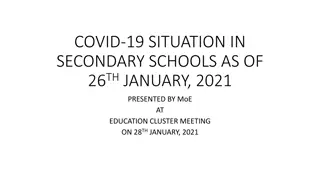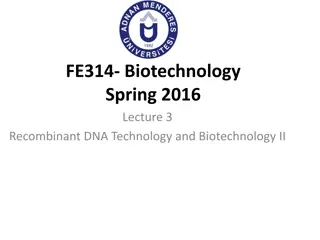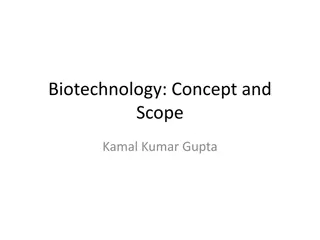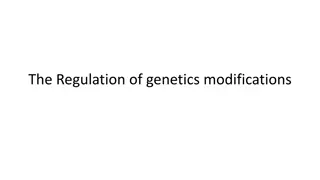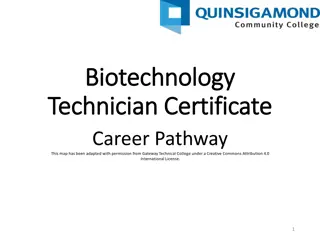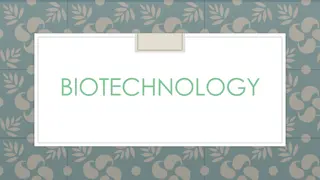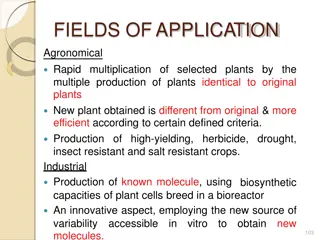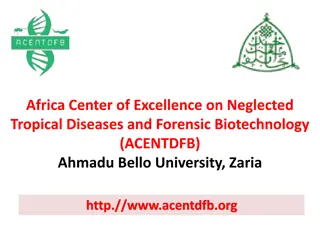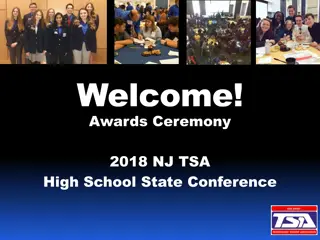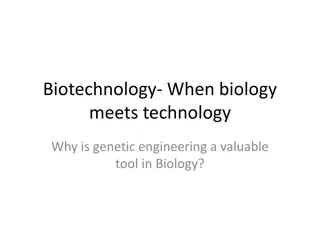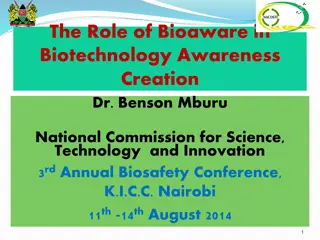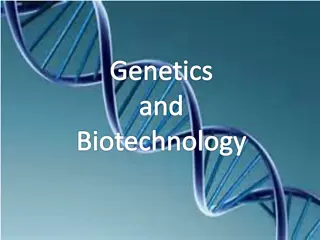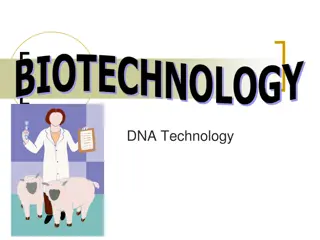Biotechnology Education Programs in High Schools
The Advanced Technological Education (ATE) National Science Foundation Biotechnology Program provides funding for various biotech education initiatives in high schools. These programs aim to create STEM awareness, offer hands-on experiences, and provide career guidance to students. Grant-funded programs such as the Amgen Biotech Experience (ABE) and Defense STEM Education Consortium (DSEC) focus on enhancing biotech education through lab-based investigations, internships, and real-world experiences. Schools, teachers, and students benefit from these efforts to promote biotech education and career readiness.
Download Presentation

Please find below an Image/Link to download the presentation.
The content on the website is provided AS IS for your information and personal use only. It may not be sold, licensed, or shared on other websites without obtaining consent from the author.If you encounter any issues during the download, it is possible that the publisher has removed the file from their server.
You are allowed to download the files provided on this website for personal or commercial use, subject to the condition that they are used lawfully. All files are the property of their respective owners.
The content on the website is provided AS IS for your information and personal use only. It may not be sold, licensed, or shared on other websites without obtaining consent from the author.
E N D
Presentation Transcript
Advanced Technological Education (ATE) National Science Foundation BIOTECHNOLOGY PROGRAM
Current Biotechnology Grant Funded Programs Brief Project Description Funding Grade Level Term Students Reached Program Biotech Career Jump Start At least 30 hours per year to create STEM awareness and provides hands on experiences and career guidance. $1,666,666 for 5 years, CCCCO 9-12 2020- 2025 85 Amgen Biotech Experience (ABE) Offers lab-based, classroom-based, and web-based investigations in biotechnology, and provides professional learning opportunities and resources to support high schools in the use of ABE materials. Career Jump Start funded; $40,000 per year, BCI 11-12 2005- 2024 ~75,000 Credit by Exam Articulation Students who pass the exam can earn college credit for their high school biotechnology classes. Teachers of schools with an articulation agreement must be ABE-trained and offering Medical Interventions/Biotechnology. Career Jump Start funded 11-12 2004- 2023 2495 Defense STEM Education Consortium (DSEC) Serves underrepresented students by providing opportunities to gain hands-on experience, to move quickly through the pathway and opportunities for paid internships. $275,000 per year, RTI CC 2021- 2024 129 Supply Chain Experience (SCE) 50 hours hands-on real world biotechnology experience where products manufactured by participants will be used in the biotech classes and ABE high school kits. Includesresume building and career exploration. Completers currently receive a $1000 scholarship from San Diego Foundation. DSEC funded; $48,000 per year, Perkins; $50,000, SDF CC 2018- 2024 140 Work-Based Learning 150 hour subsidized external industry internships and hourly Instructional Lab Assistants DSEC and Perkins funded; $21,000, SWF CC 2018- 2024 35 interns 12 PT ILTs
ABE and Articulation Data 2018-19 2019-20 2020-21 2021-22 2022-23 Schools served 55 25 8 32 32 Teachers implementing Amgen Biotech Experience 73 35 8 45 38 Students reached 10263 3255 642 4168 5510 Articulating Schools 16 21 19 20 21 Title I Articulating Schools 8 11 11 12 12 Students tested 616 607 675 596 753 *Teachers of schools with an articulation agreement must be ABE-trained
Articulating High Schools Articulating High Schools Mira Mesa High School University City High School Canyon Hills High School Kearny High School Clairemont High School San Diego High School Crawford High School La Jolla High School Point Loma High School Rancho Bernardo High School Westview High School Castle Park High School Sweetwater High School Eastlake High School Helix High School Sage Creek High School Mission Vista High School Torah High Schools of San Diego School for Entrepreneurship & Tech Del Lago Academy Map of Articulating Schools
ATE Project Plan Outcome: To create a direct pathway of students from high school to certification to employment. Plans to address labor demand include: 1. Recruitment of first-generation and/or Hispanic high school students, who have passed the BIOL 131 Credit by Exam, into a college bridge program 2. Provide work-based learning experiences that promote acquisition of hands- on lab skills in the Applied Biotech courses and the Supply Chain Experience 3. Offer student pathways to earning college Biotechnology Certificate of Achievement Awards and/or the nationally recognized Biotechnician Assistant Certification (BACE).
